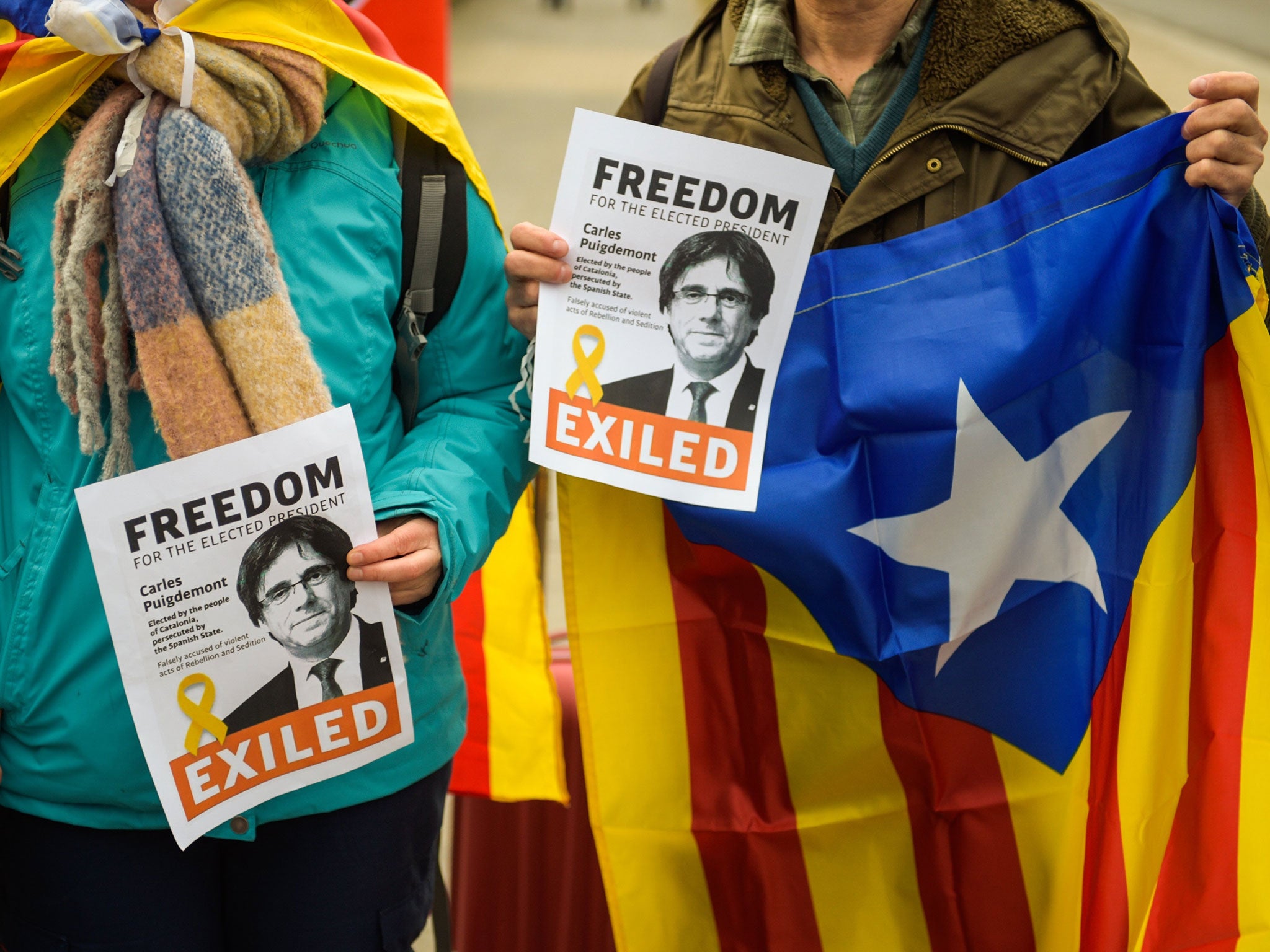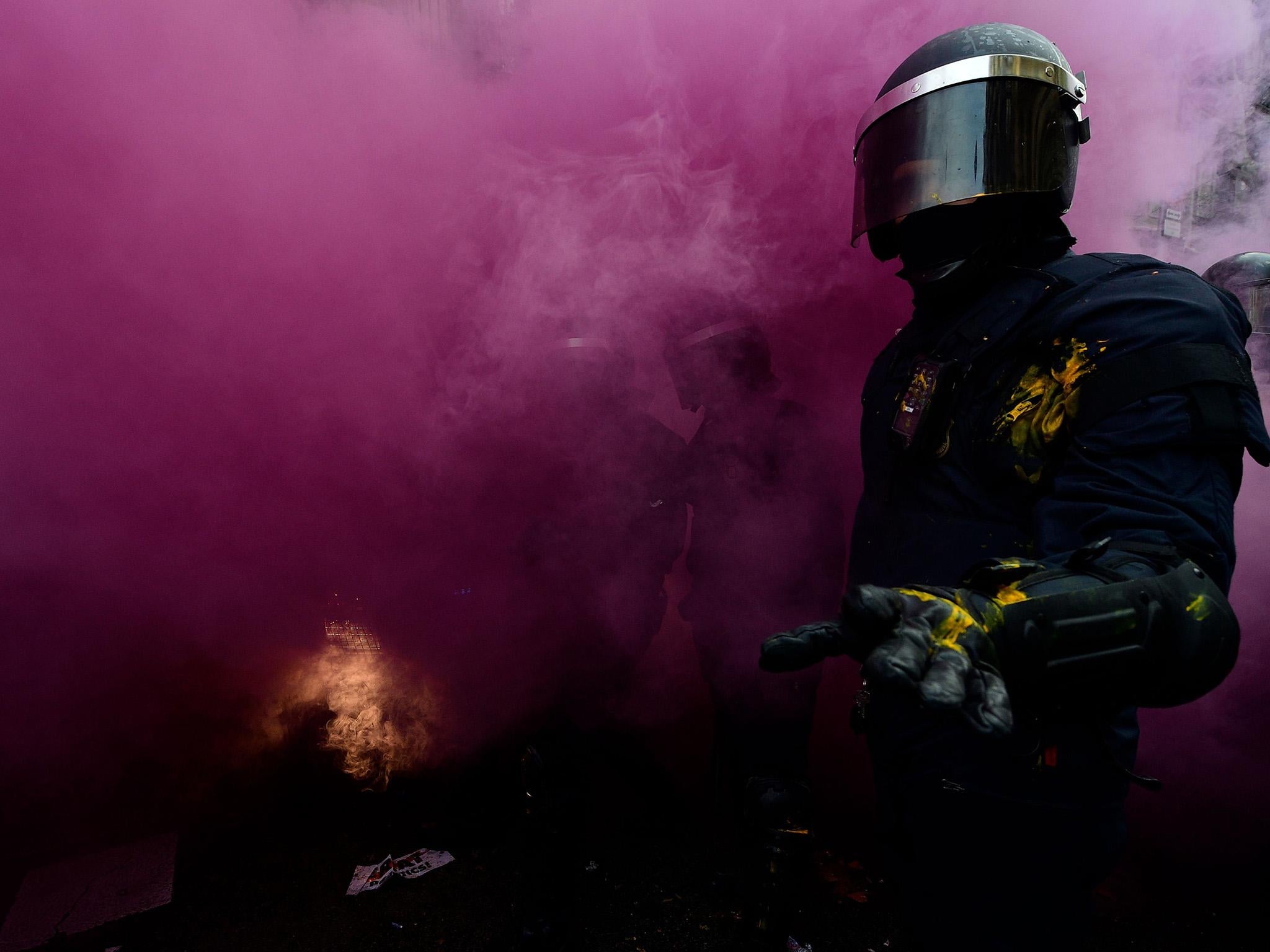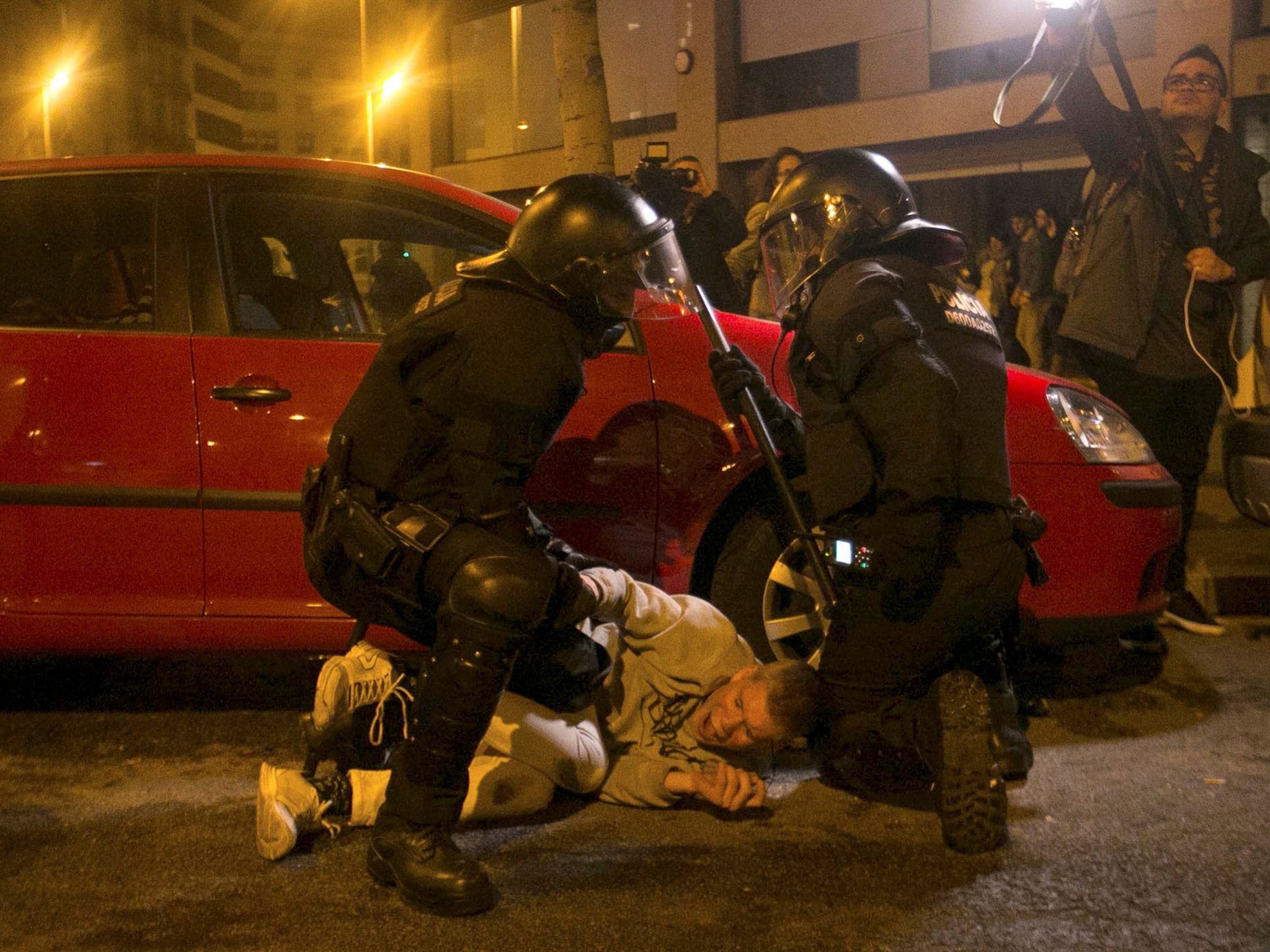Carles Puigdemont: German court rules arrested ex Catalonian leader must remain in custody
Capture of former regional leader sparked demonstrations in Barcelona attended by tens of thousands

Your support helps us to tell the story
From reproductive rights to climate change to Big Tech, The Independent is on the ground when the story is developing. Whether it's investigating the financials of Elon Musk's pro-Trump PAC or producing our latest documentary, 'The A Word', which shines a light on the American women fighting for reproductive rights, we know how important it is to parse out the facts from the messaging.
At such a critical moment in US history, we need reporters on the ground. Your donation allows us to keep sending journalists to speak to both sides of the story.
The Independent is trusted by Americans across the entire political spectrum. And unlike many other quality news outlets, we choose not to lock Americans out of our reporting and analysis with paywalls. We believe quality journalism should be available to everyone, paid for by those who can afford it.
Your support makes all the difference.Catalonia‘s former president must remain in custody in Germany while the country’s courts decide whether to extradite him to Spain.
Carles Puigdemont’s arrest on Sunday saw tens of thousands of Catalan demonstrators take to the streets in Barcelona, where some clashed with police.
Fierce confrontations took place outside the central government offices as riot police beat flag-waving protesters with batons, leaving several bloody and injured.
Around 100 people were hurt across the Catalan region, including 23 members of the Mossos d’Escuadra police force, and nine people were arrested, authorities said.

A court in the northern German town of Neumuenster said the formal requirements to detain Mr Puigdemont had been met by a European arrest warrant issued in Spain.
The court denied him bail and said he posed a flight risk, concluding he had a “strong incentive” to try to travel to Belgium, where his chances of avoiding extradition may be greater.
European rules call for a final decision on extradition within 60 days of the suspect’s arrest, though a 30-day extension is possible, a Justice Ministry spokeswoman, Stephanie Krueger, said.
Spain‘s government said Mr Puigdemont’s arrest, at a highway rest area south of the German-Danish border as he attempted to drive from Finland to Belgium, shows “nobody can infinitely mock justice.”
The country’s authorities accuse Mr Puigdemont, 55, of rebellion and misuse of public funds for organising an unauthorised referendum last year on independence for Catalonia.
Madrid deemed the referendum illegal and took over direct rule of the wealthy northeastern region after a symbolic declaration of independence by the Catalan parliament.

Authorities examining a European arrest warrant must determine whether the offence a suspect is accused of committing is equivalent to a criminal offence in the country where he was arrested.
Germany’s criminal code includes an offence which appears to be comparable to rebellion.
It calls for prison sentences for anyone who “undertakes, by force or through threat of force” to undermine the republic’s existence or change its constitutional order.

Mr Puigdemont and other Catalan separatists who are wanted by Spain after fleeing the country argue their movement has been entirely peaceful.
Additional reporting by agencies
Join our commenting forum
Join thought-provoking conversations, follow other Independent readers and see their replies
Comments